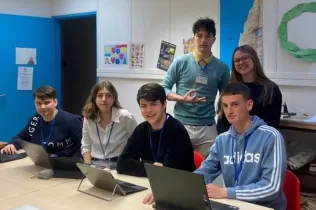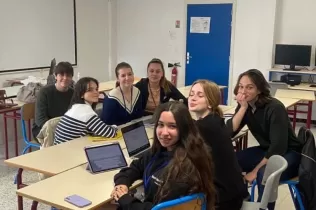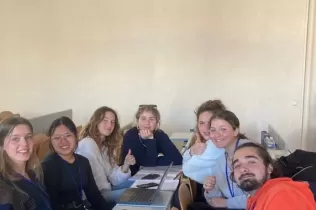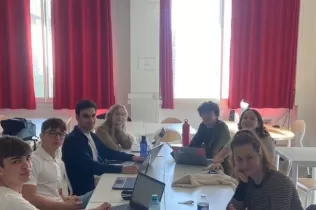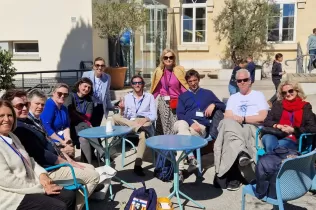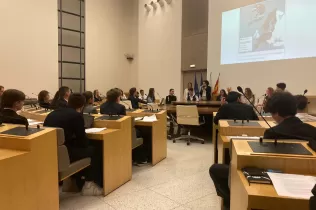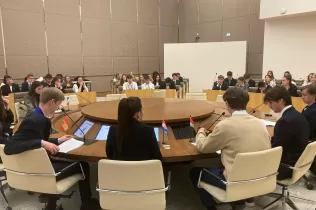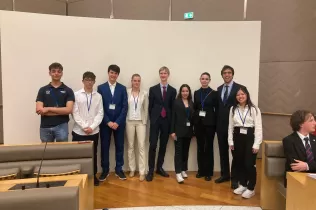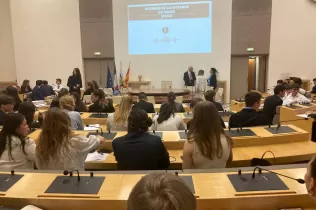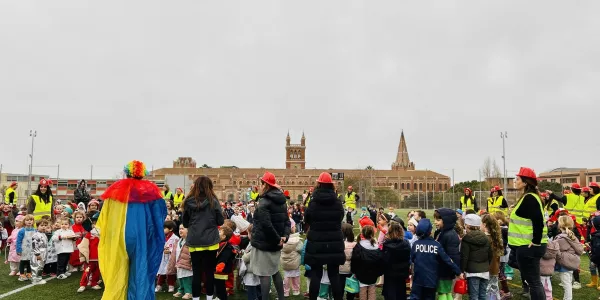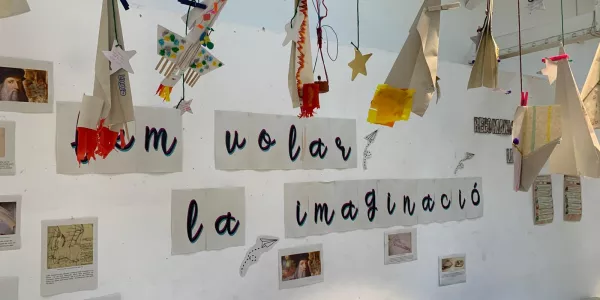31
de març
de 2023
Jesuit European Educational Project (JEEP) 2023
A group of 8 first year high school students is participating from March 25 to April 1 in the Jesuit European Educational Project (JEEP) which this year will celebrate its 19th edition in the School De Provence (Marseille, France). The JEEP is an international project of European Jesuit schools that, through the simulation of the work of the European Parliament, promotes the European awareness of our students and gives them the opportunity to participate in formal debates using English as a language of communication. However, they are learning to put into practice the processes of a democratic system.
Imatge

The Jesuit European Educational Project (JEEP) is a simulation exercise of the European Parliament. The basic idea is that each school delegates 8 students and accompanying teacher for a JEEP session. Each student must choose a specific committee (Health, Environment, Political, Media, etc), and each committee must deal with a particular issue: something that might have to be discussed in the European Parliament as well. In the months before the actual JEEP session, the students at the participating schools collect information on the committee subjects and exchange information and points of view via e-mail with the rest of the European participants.
This year the committees and the topics are:
Committee N°1. Foreign Affairs. Topic: Is it time for an EU army?
Committee N°2. Industry, Research and Energy. Topic : How can the EU ensure its energy independence from Russian gas?
Committee N°3. Science and Technology. Topic: How can the European Union regulate the Metaverse, and which actions need to be prioritized?
Committee N°4. Human Rights. Topic: How can the EU efficiently improve access to education for refugee children?
Committee N°5. Women's Rights and Gender Equality. Topic: How can equal women's access to abortion care be effectively ensured in the EU?
Committee N°6. Civil Liberties Topic: The future of the Schengen zone.
Committee N°7. Constitutional Affairs Topic: The question of youth voting. Should the voting age limit be lowered to 16?
Committee N°8. Economic and Monetary Affairs. Topic: What steps could the EU take to ease the transition towards a more resource-efficient and circular economy?
Participating Jesuit Schools:
- Isusovačka Klasična gimnazija s Pravom Javnosti u Osijeku – Osijek (Croatia)
- Fényi Gyula Jezsuita Gimnázium és Kollégium – Miscolč (Hungary)
- Istituto Leone XIII – Milano (Italy)
- Kauna jesuitu gimnazija Kaunas & Vilniaus jesuitu gimnazija -Vilnius (Lithuania)
- Jesuïtes Sarrià – Sant Ignasi – Barcelona (Spain)
- School De Provence – Marseille (France)
- St-Barbara College - Gent (Belgium)
